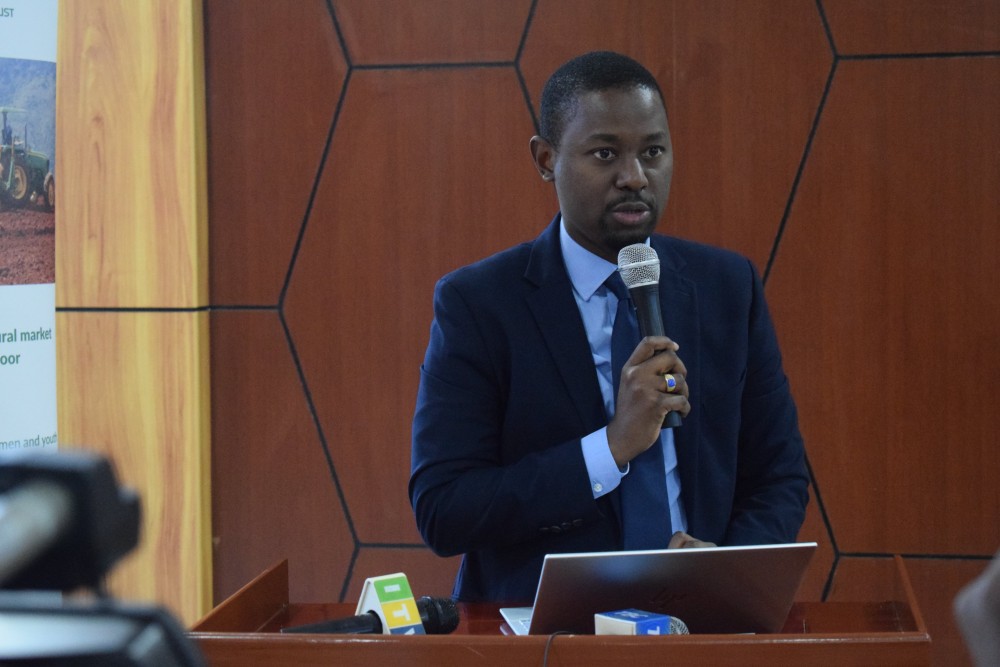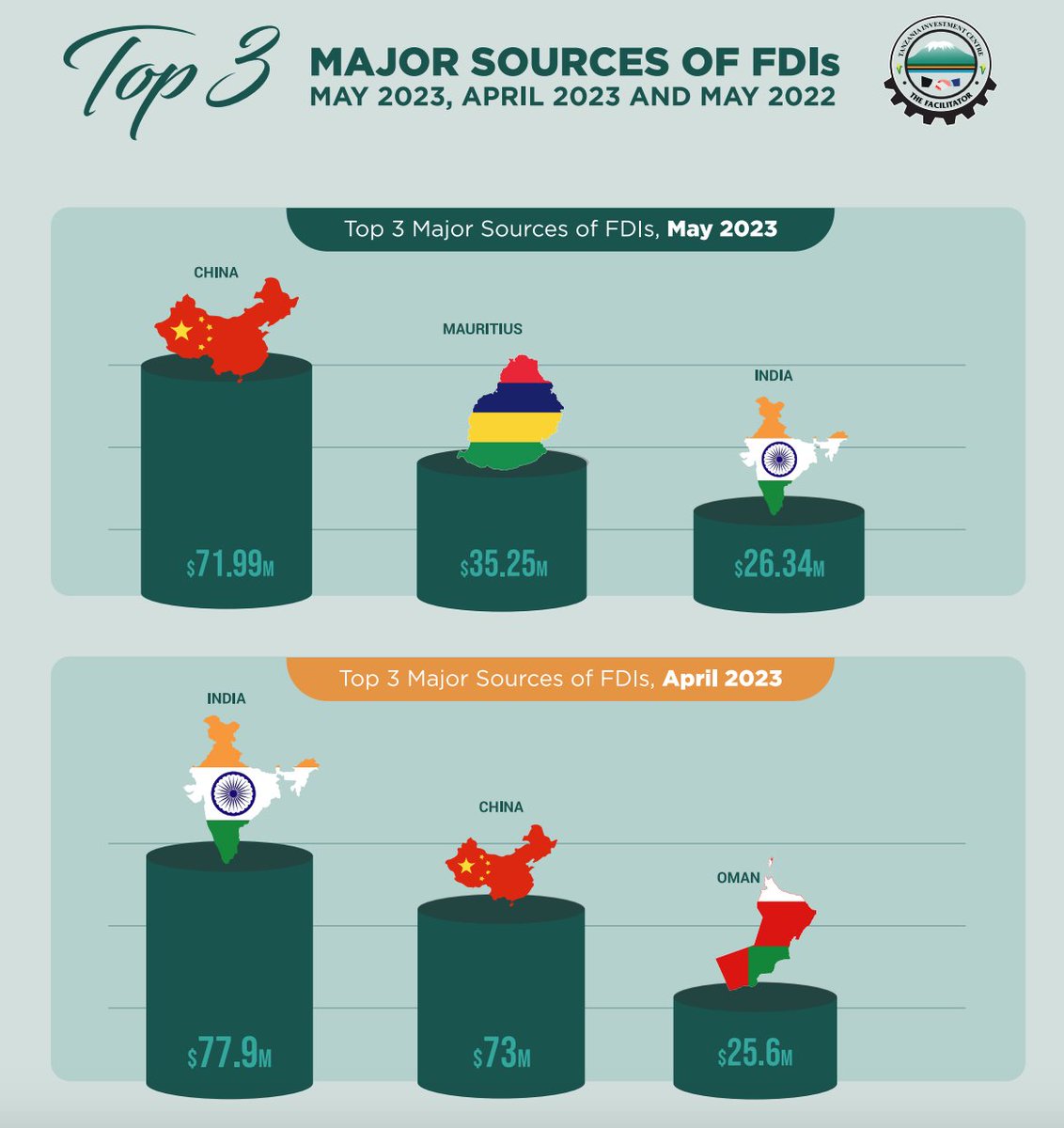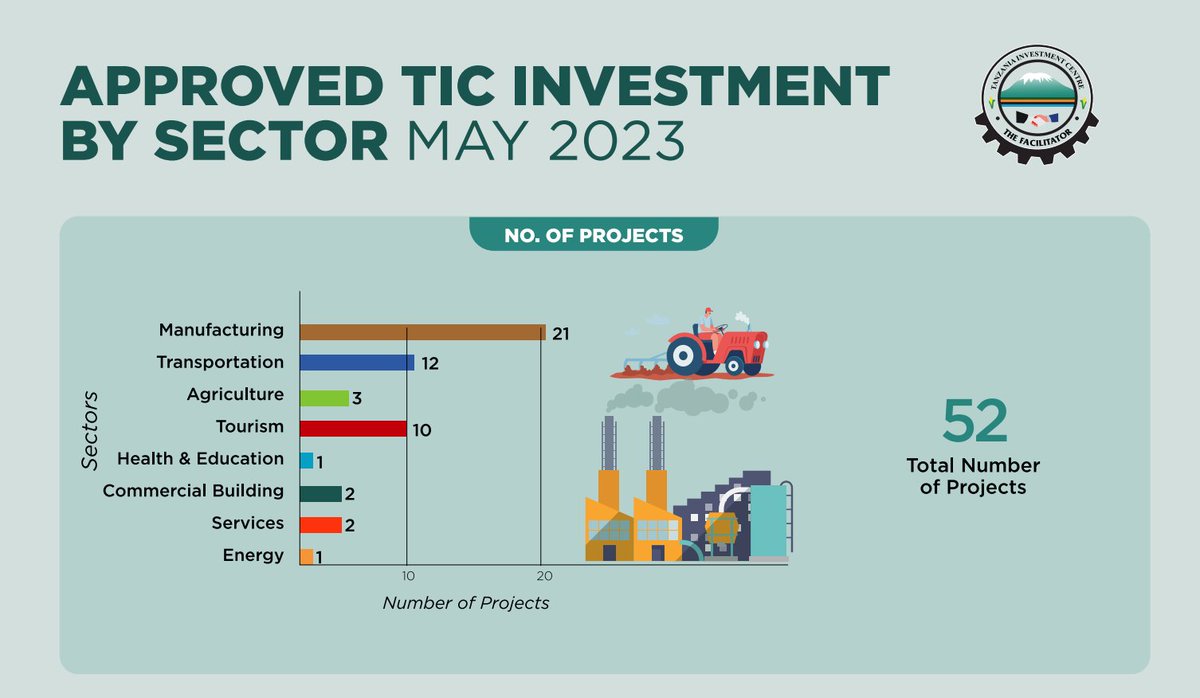In a remarkable display of ambition and determination, the Tanzania Investment Centre (TIC) has set its sights on attracting a staggering $5 billion worth of investment projects each year by 2026. With a three-year target of registering projects worth $15 billion, the TIC is poised to unlock Tanzania’s economic landscape and propel it to new heights.
Already making impressive strides, the TIC has showcased its mettle by registering a total of 256 investment projects valued at an impressive $3.8 billion in 2021. This momentum continued into 2022, with 293 projects worth an impressive $4.5 billion recorded. In the first half of 2023 alone, the TIC has already registered 229 projects valued at $2.2 billion, further solidifying its path towards success. From January 2021 to June 2023, 778 projects worth a staggering $10.5 billion have been registered.
| Year | Number of Projects | Value of Projects (in billion USD) |
|---|---|---|
| 2021 | 256 | 3.8 |
| 2022 | 293 | 4.5 |
| Jan-Jun 2023 | 229 | 2.2 |
| Total | 778 | 10.5 |
This table showcases the registration of investment projects by the Tanzania Investment Centre (TIC) over a span of three years, including data for individual years as well as cumulative figures. It provides insights into the number of projects registered and their corresponding values, highlighting the progress made towards the TIC’s ambitious investment goals.
To put these numbers into perspective, consider this: Vietnam attracts investments of up to $38 billion annually, Indonesia lures in $24 billion, and Egypt captures $9.8 billion. With similar potential, Tanzania is poised to achieve its ambitious goals.
To achieve this audacious vision, the TIC plans to harness the power of technology and innovation, leveraging its embassies abroad as powerful catalysts. By implementing advanced systems and cutting-edge approaches, the center aims to make Tanzania an irresistible destination for global entrepreneurs seeking Foreign Direct Investment (FDI).
Foreign Direct Investment (FDI) refers to the investment made by companies or individuals from one country into another. In simple terms, it means when a company or a person from a different country puts their money or resources into a business or project in Tanzania. When foreign investors decide to invest in Tanzania, they bring in capital, technology, expertise, and resources that can help boost the local economy. This investment can take various forms, such as building factories, setting up new businesses, or buying existing companies in Africa.
Central to this endeavor is the new investment law, replacing the outdated Investment Act of 1997, which the TIC is entrusted to oversee. This progressive legislation reduces the minimum investment capital threshold for Tanzanian businesses from $100,000 to $50,000, creating opportunities for local entrepreneurs. Foreign investors, on the other hand, maintain a threshold of $500,000. With the introduction of an integrated electronic system, processes are simplified, and strict enforcement measures ensure compliance, with increased fines for non-compliance.
Mr. Gilead Teri, the visionary Executive Director of Tanzania Investment Centre, highlighted Tanzania’s unique advantages:
“To reach the goal, we will ensure the use of technology and innovation in attracting Foreign Direct Investment (FDI) by effectively capitalising on our embassies abroad. In order to attain the three year goals, it is necessary for us to put emphasis on the implementation of the land bank manual to be able to have enough land with infrastructure such as roads, electricity and water. We will continue to improve human resources capital by continuing to provide short-term, medium- and long-term training as well as continuing to improve the use of internal and external systems,”
Looking ahead, the TIC envisions not only attracting massive investments but also catalyzing growth in key sectors. With a focus on green climate technologies, the center aims to secure $2 billion in investments and attract $1 billion in technological ventures. Sectors like agriculture, Fast-Moving Consumer Goods (FMCG), construction products, minerals, and forest resources are poised to drive a surge in exports, predicted to double. Tanzania’s economic landscape is primed for an epic transformation.
Mr. Teri’s vision extends even further, as he expressed his desire for Tanzania to become a hub for the production of electronic goods. Within the next three years, he envisions the country taking a giant leap forward by establishing assembly lines for electronic products.
Under the dynamic leadership of President Samia Suluhu Hassan, the TIC has experienced remarkable success. Within just 1,000 days, 778 projects have been registered, leading to the creation of a whopping 125,382 new jobs. The factors behind this triumph include strategic project registration, dedicated aftercare services, the enactment of the progressive New Investment Law, advanced systems, transparent provision of information, and unwavering promotion of investment opportunities.
Analyzing the May 2023 Investment Factsheet
The Tanzania Investment Centre (TIC) recently released its May 2023 Investment Factsheet, providing a comprehensive overview of the country’s economic landscape. Let’s dive into the key highlights from the report, shedding light on investments and the business environment in Tanzania.
Significant Boost to the Economy: In May 2023, approved investments amounted to an impressive $327.63 million, injecting vitality into Tanzania’s economy. This capital infusion led to the creation of 6,279 job opportunities across 52 projects, addressing the crucial need for employment.
Foreign Direct Investments (FDIs)
China, Mauritius, and India emerged as the top three sources of Foreign Direct Investments (FDIs) in May 2023, highlighting international interest and confidence in Tanzania’s business environment. However, concerns arise regarding the transparency and sustainability of investments from Mauritius, a significant source of FDIs. Addressing these concerns is crucial to ensure enduring impact and alignment with Tanzania’s long-term sustainability goals.
To tackle transparency concerns, Tanzania must enhance disclosure requirements, promote accountability, and implement stringent due diligence and monitoring mechanisms. Collaboration with international organizations to combat illicit financial flows will also play a vital role in maintaining transparency. Engaging with investors, including those from Mauritius, is critical to foster shared understanding and align investments with Tanzania’s development priorities. This engagement will ensure consideration of social, environmental, and governance factors. By prioritizing transparency, sustainability, and responsible investment, Tanzania can attract high-quality FDIs that yield long-term benefits, driving economic growth, employment, and knowledge transfer.
Growing Business Activity
May 2023 witnessed a significant increase in permits, licenses, and approvals, reaching a total of 880, reflecting growing interest and confidence in doing business in Tanzania. However, this surge in business activity also emphasises the need to navigate the complex regulatory environment effectively. Streamlining regulatory processes, simplifying bureaucratic procedures, and enhancing the ease of doing business will be essential for Tanzania to y.
The manufacturing sector emerged as a leader within the approved projects, underscoring its significance in Tanzania’s economic landscape. This sector plays a crucial role in job creation, economic growth, and GDP contribution. Tanzania’s commitment to diversifying its economy and fostering industrial development is evident through the dominance of the manufacturing sector.
By focusing on manufacturing, Tanzania aims to stimulate employment, enhance technological capabilities, and promote export-oriented industries. This sector’s growth has a ripple effect, creating value-added contributions across supply chains and driving a more diversified and resilient economy.
In conclusion, the Tanzania Investment Centre’s ambitious goals to attract $5 billion in annual investment projects by 2026, with a total of $15 billion within three years, are achievable. The TIC’s significant progress, with 778 projects worth $10.5 billion registered from 2021 to mid-2023, reflects growing business activity and the prominence of the manufacturing sector.
As Mr Teri stressed that
“We have set ourselves a giant goal, but we trust it is possible because Tanzania is the country with the potential to attract many projects, including top quality infrastructures such as roads, airports and standard rail lines… We have enough land, coupled with low costs of electricity and water, and also our strategic geographic position enables us to export goods to many countries with huge capital like Asian countries.”
To leverage these developments fully, Tanzania must address transparency and sustainability concerns, streamline regulations, promote a business-friendly environment, and prioritize manufacturing growth. By doing so, Tanzania can attract more investments, sustain economic growth, and unlock its full potential for prosperity. The May 2023 Investment Factsheet provides valuable insights into Tanzania’s economic landscape, offering a glimpse into positive trends and opportunities on the horizon.
Read More Investment Articles



